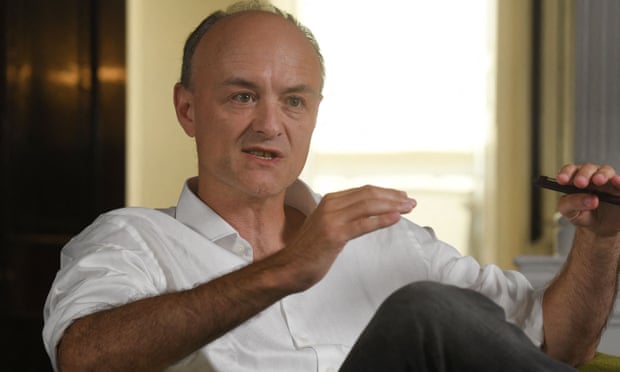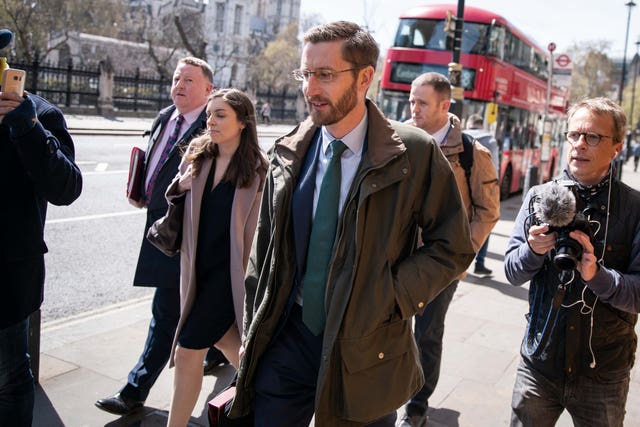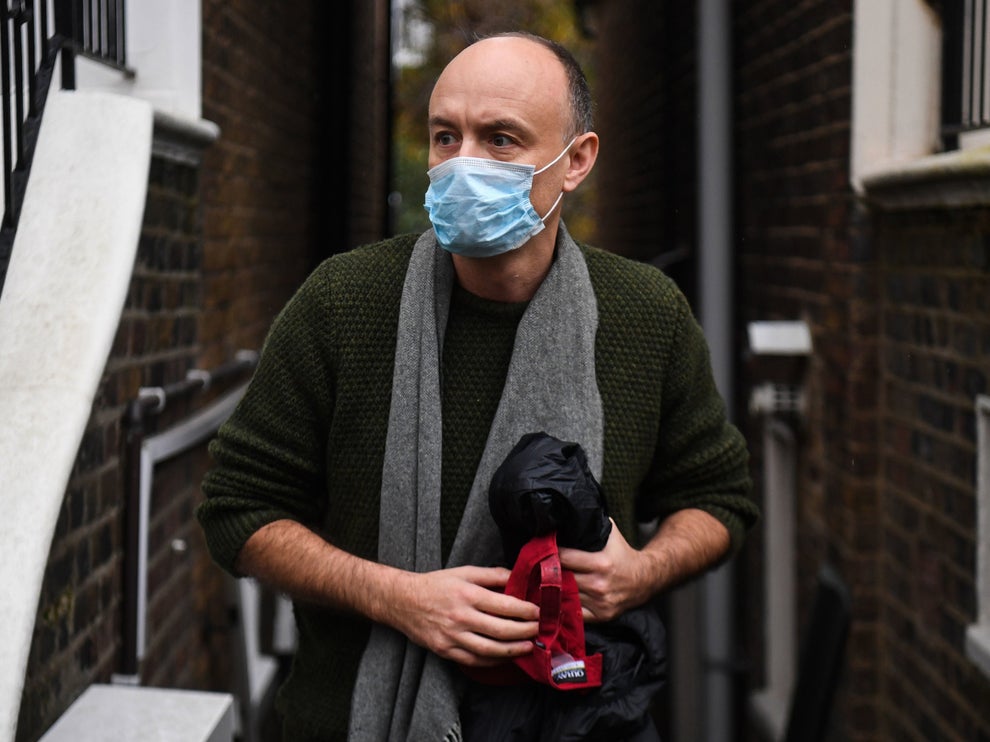Dominic Cummings personally called a former colleague on the Vote Leave Brexit campaign and asked if his company would work for the government on its response to the Covid pandemic, leading to the award of a £580,000 Cabinet Office contract with no competitive process.
In an email on 20 March 2020, Boris Johnson’s former chief adviser asked the most senior civil servant responsible for contracts to sign off the budget immediately, and that if “anybody in CABOFF [the Cabinet Office] whines”, to tell them Cummings had “ordered it” from the prime minister.
The company, Hanbury Strategy, was founded by Paul Stephenson shortly after the 2016 Brexit referendum, during which he worked alongside Cummings as the Vote Leave director of communications. Hanbury also worked for the Conservative party on the 2019 general election campaign, with Cummings and Ben Warner, a data specialist who worked for Vote Leave before becoming an adviser at No 10.
The contract with Hanbury, to conduct opinion polls on the public’s view of the government’s Covid response, is subject to a legal challenge by the Good Law Project (GLP), which argues that it shows “apparent bias”, particularly given the company’s close connection to Cummings and the Conservative party.
A witness statement by Cummings and other documents including internal Cabinet Office emails were made public at a court hearing last Friday. They show that concerns were expressed among civil servants that some work Hanbury did with public money, such as polling opinion on opposition politicians, including the Labour party leader, Keir Starmer, and Sadiq Khan, the Labour mayor of London, was carried out for the political advantage of the Conservative party.
On 26 May 2020, a Cabinet Office official emailed a colleague saying: “Hanbury measures attitudes towards political figures, which they shouldn’t do using government money, but they’ve been asked to and it’s a battle that I think is hard to fight.”
Cummings said in his witness statement that “my expert opinion” was that Hanbury would provide world-class polling work, and was the only firm who could do what was needed, start immediately and “we can trust to give their all and be honest”.
Cummings said that, on Sunday 15 March 2020, “I called many people to ask for help – epidemiologists, project managers etc. I also asked Paul Stephenson, a partner at Hanbury, if he would help with polling, data collection and modelling.”
Stephenson said they could start straight away. Cummings said in his statement: “Following my call to Paul Stephenson … I requested that Hanbury be engaged urgently to start conducting frequent large-scale polls immediately.”
On 20 March, Cummings emailed Alex Aiken, the head of government communications at the Cabinet Office, saying: “URGENT: Alex pls sign off immediately budget so Paul S can get out our large scale polls into field TODAY. Anybody in CABOFF whines tell them I ordered it from PM [OFFICIAL].”
Normal legal requirements for government contracts to be opened out to a full competitive tender were suspended due to the emergency of the pandemic, and the contract was directly awarded to Hanbury.
In a similar judicial review challenge to a direct contract – awarded to Public First, a research company with longstanding connections to Cummings – Mrs Justice O’Farrell ruled in GLP’s favour in June, saying that even in the pandemic the government should have conducted an exercise to consider other potential companies.
Aiken said in his witness statement that Cummings’ email was not “an instruction to me or my team to appoint Hanbury … this was purely an idea we were being asked to consider and I have pushed back on such requests before”. Aiken said he decided to hire Hanbury after it provided a good proposal for opinion polling, and its work was of high quality which had “left a legacy” for Cabinet Office opinion polling.
He said he would have preferred the questions about Starmer and Khan not to have been asked, but explained it was not to seek political advantage; they were testing an idea for joint press conferences with government ministers, and to “benchmark” the credibility of government spokespeople. It was “well-intentioned but ill-considered”, Aiken said. Cummings also said that polling was to see if the politicians “could help public health communication, it had no political purpose of any kind”.
A Hanbury spokesperson said the company agreed to do the work “at extremely short notice” although it involved reputational risk.
They said: “Our work contributed to what was a hugely successful public health communications campaign which undoubtedly prevented many deaths. For that reason, if we had to make the choice again we would still agree to step up and help in this time of crisis.”
The Cabinet Office has appealed against the judgment in the Public First case, and is also defending the GLP’s challenge to the Hanbury contract, arguing it was awarded lawfully.
A Cabinet Office spokesperson said: “In response to an unprecedented global pandemic, the government acted with urgency to undertake vital research into public attitudes and behaviours. This research shaped crucial public health messages, helping us to protect the NHS and save lives.”





